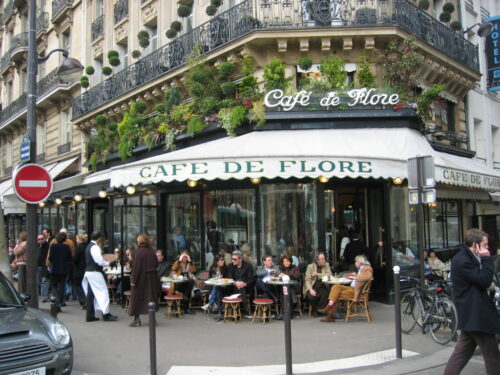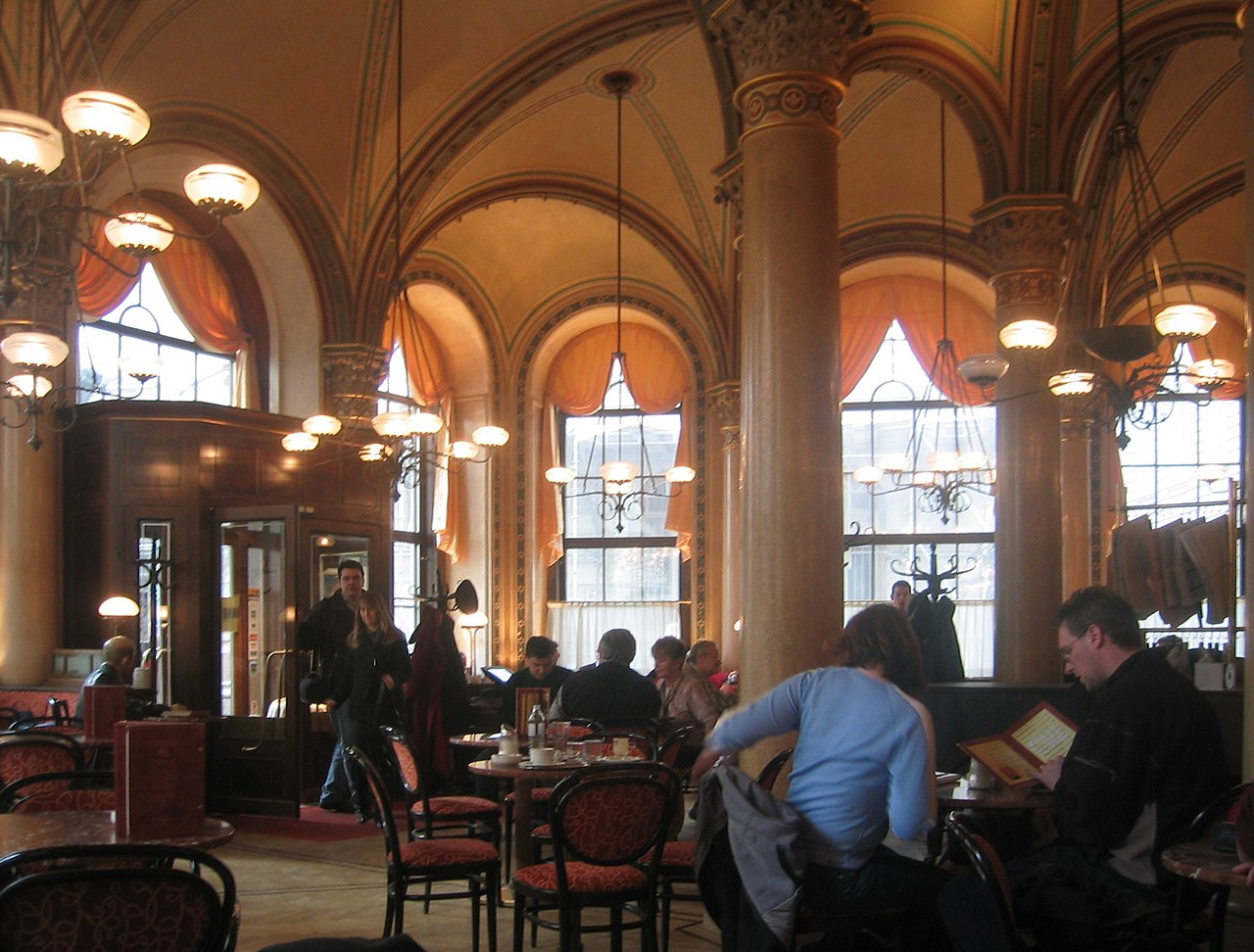Café Central in Vienna, Austria. Photo: Andreas Praefcke / CC BY 3.0 DEED.
A cup of gourmet coffee shared with a friend is happiness tasted and time well spent.” — Unknown
Coffee, a beverage savored by millions across the globe, is not just a means to an energetic morning or a cozy afternoon. It serves as a social lubricant, a symbol of hospitality, and a ritual that unites people. The rich aroma of coffee beans, the soothing sound of steam frothing milk, and the warmth of a mug in your hands — these sensory experiences often serve as a backdrop for social interaction and community building.
Coffee and Conversation.
In numerous cultures, coffee holds a significant place in social gatherings. It could be a group of friends catching up at a local café, colleagues taking a much-needed coffee break amidst a hectic workday, or family members sharing a pot of coffee at home during a lazy Sunday brunch. These moments, seemingly ordinary, often foster deep conversations and camaraderie. The act of drinking coffee together can strengthen bonds, encourage dialogue, and create a sense of belonging. It’s not just about the beverage; it’s about the shared experience and the memories created.
Coffeehouses and Culture.
Coffeehouses, for centuries, have been social hubs where individuals gather not just to savor a cup of coffee, but also to engage in intellectual discourse, read the latest publications, write their thoughts, and exchange ideas. Historically, coffee houses in cities like Vienna, London, Paris and Istanbul were not just places to drink coffee; they were centers of innovation and change, influencing everything from politics to literature. They were the meeting grounds for intellectuals, artists, and even revolutionaries. Today, modern coffee shops continue to serve as community spaces that foster creativity and collaboration.

Coffee and Business Networking
The casual yet focused atmosphere of a coffee shop provides an ideal setting for business networking. It’s a neutral ground that encourages open conversation, fostering connections and building relationships. The act of sharing a cup of coffee can break down barriers, making it easier to discuss business matters in a relaxed, informal setting. The global popularity of coffee means that it transcends cultural boundaries, making it a universal symbol for social interaction and engagement, facilitating communication, collaboration, and innovation. Coffee and business networking are intertwined, each enhancing the value of the other in the realm of social interaction.
Coffee and Hospitality.
In many parts of the world, serving coffee is more than a mere act; it’s a sign of hospitality and a warm welcome. For instance, in Ethiopia, the birthplace of coffee, there’s a traditional coffee ceremony that involves roasting and grinding the coffee beans, brewing the coffee in a clay pot known as a “jebena”, and serving it in small cups. This ceremony, often performed for guests, is not just about making coffee; it’s a significant social event that symbolizes respect and friendship. It’s a time for storytelling, for resolving disputes, for honoring elders, and for celebrating community ties.

A Social Tradition
The social aspects of coffee extend far beyond its stimulating taste and enticing aroma. It’s a connector of people, a catalyst for conversation, and a cornerstone of culture. So, the next time you sip your coffee, remember that you’re partaking in a rich, social tradition that spans centuries and cultures. Each sip is a testament to coffee’s enduring role in fostering connections and community.
Source
Silencio Coffee
SilencioCoffeeCo.com
*The views and opinions expressed on this website are solely those of the original authors and contributors. These views and opinions do not necessarily represent those of Spotter Up Magazine, the administrative staff, and/or any/all contributors to this site.

